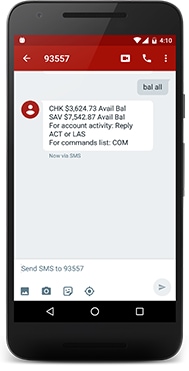Living off-campus comes with bigger responsibilities. One of the most prominent changes from on-campus housing is an increase in financial obligations. From the electric company to your internet provider, everybody seems to want your money at different times during the month, and between rent, credit cards, car insurance, and utilities, it can be hard to figure out what is due when. If you find yourself regularly paying late fees and missing due dates, here’s some ways to keep better track of your bills.

Attribution: Mint
1. Use an app – One of the easiest ways to receive alerts regarding your bills is to use a money management app. Although several exist, the most popular are Mint, developed by Intuit, and BillGuard. Mint is a complete money management tool, and will help you create and stick to a budget, in addition to tracking your bills, spending habits, and bank accounts. BillGuard focuses on helping you understand your spending habits and protecting your credit cards and bank accounts from fraudulent activities. Like Mint, it also tracks your bills and can help you create a budget. Both apps are free, and can be used on iOS and Android.

Attribution: The Washington Post
2. Enroll in automatic bill payments – Banks often give account holders the option to automatically pay bills through their checking account. By using this feature, account holders consent to paying certain bills automatically, and do not need to make manual payments each month. Instead, the money is automatically removed from their checking account. For those who are uncertain that they can stick to a bill payment schedule, this a good option, however, it gives you less control over finances, and runs the risk of sucking your account dry. Additionally, if your account does not have the money to cover a bill, you may end up being late to pay, especially if you don’t keep regular tabs on your account and do not notice that the payment didn’t go through.

Attribution: Wells Fargo
3. Sign up for alerts – One of the simplest ways to ensure you are on time with your payments is to sign up for email and text alerts. Most billers give you the option of providing an email or phone number to receive reminders before your bill is due, which can help keep your payments on track.

Attribution: Pinterest
4. Create a checklist and calendar – For those who prefer to make payments the old fashioned way, a good bill tracking option is to create a payment schedule. By doing so, you create a checklist of bills you know you need to pay, and create a calendar showing when you need to pay them. Doing this can help you visualize when payments are due, and sticking to the schedule will ensure that you avoid late fees. Usually, this system works best when your bills are also organized, whether they come to you online or in the mail, so that you know how much you need to pay each biller.
Attribution: The Odyssey Online
5. Make your schedule work for you – Often, one of the main problems with paying bills is that there are a dozen different due dates for each payment. Instead of trying to remember when everything is due, try changing your billing schedule to match up with 1-3 different dates. For example, if you can change your bill schedule so that you have one date when your utility bills are due, one date that your rent is paid, and one date that you pay your credit card bills and online subscription payments, it will be much easier to keep track of when things need to be paid.
Read over our tips, but still want more help? Consider checking out our resource pages, where we collect articles, blog posts, and more on topics related to off-campus housing for tenants, parents, and landlords!




Recent Comments